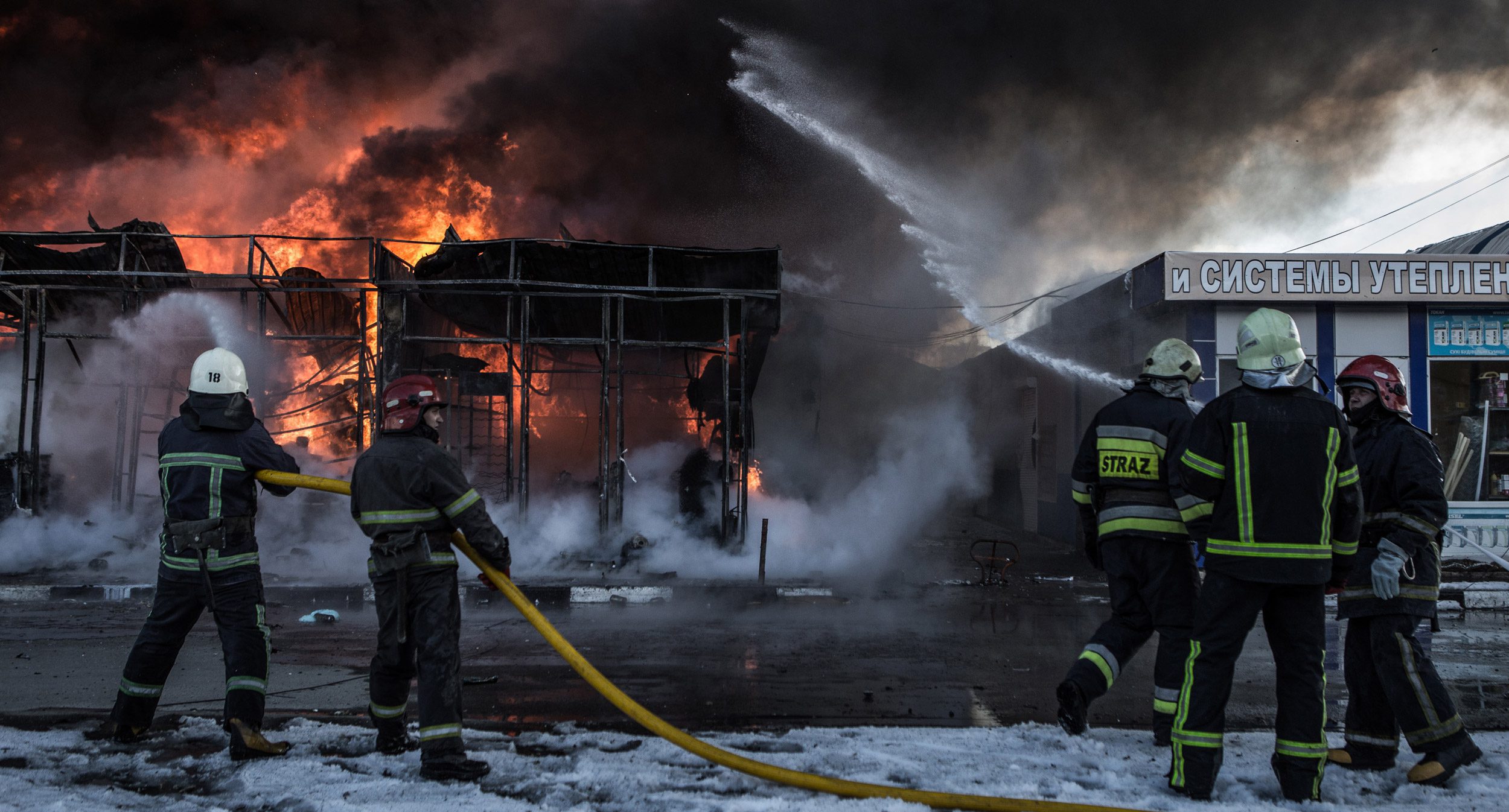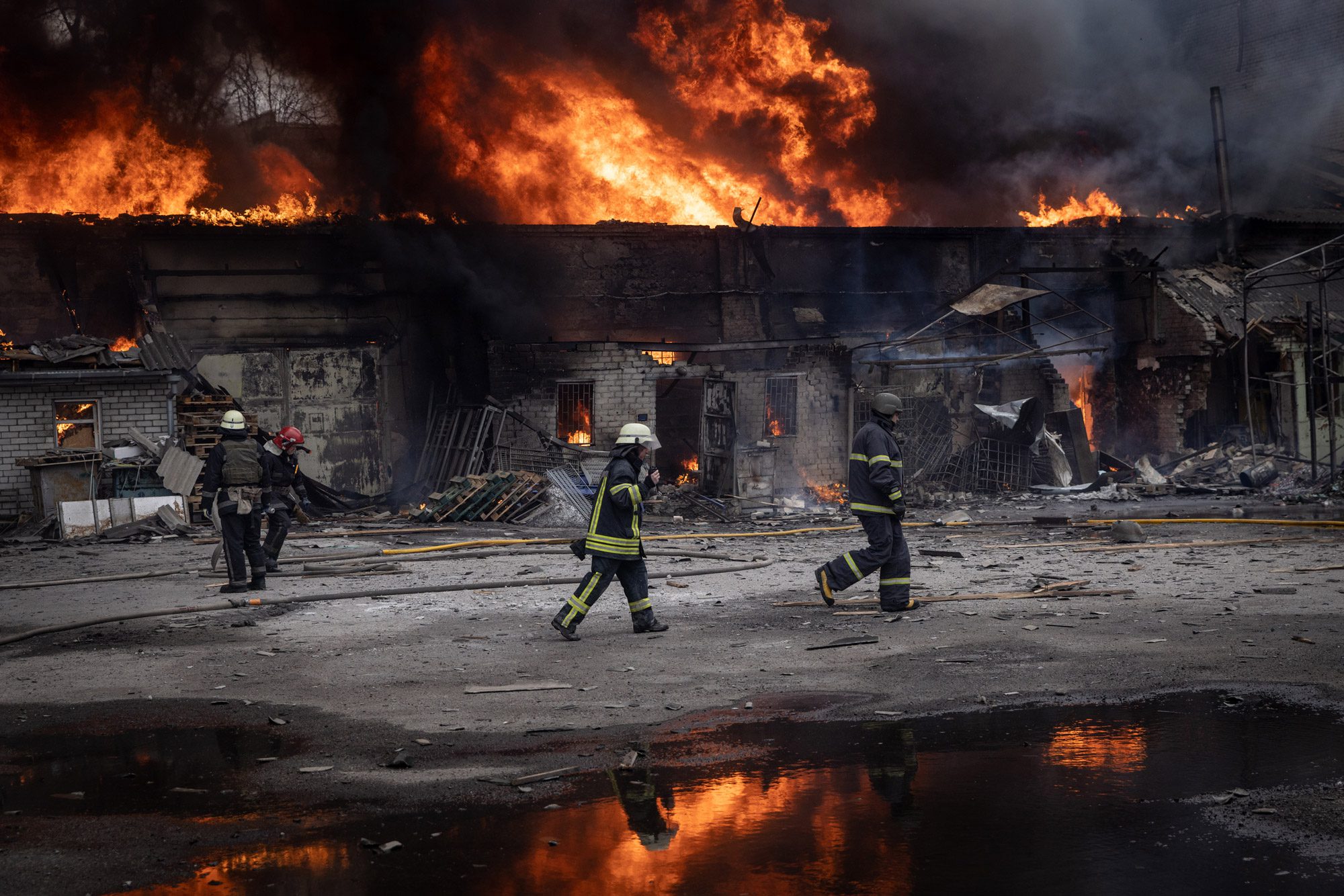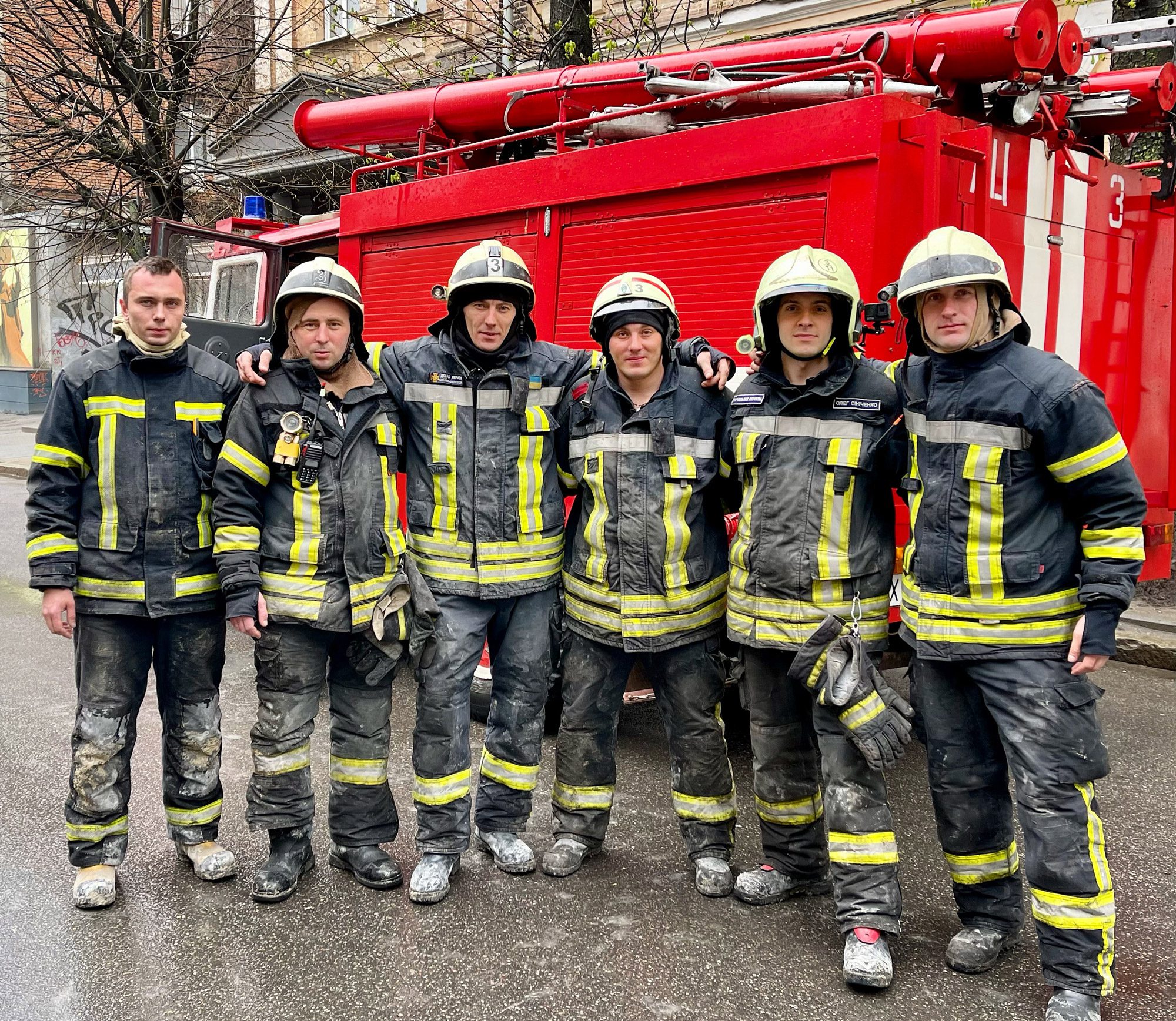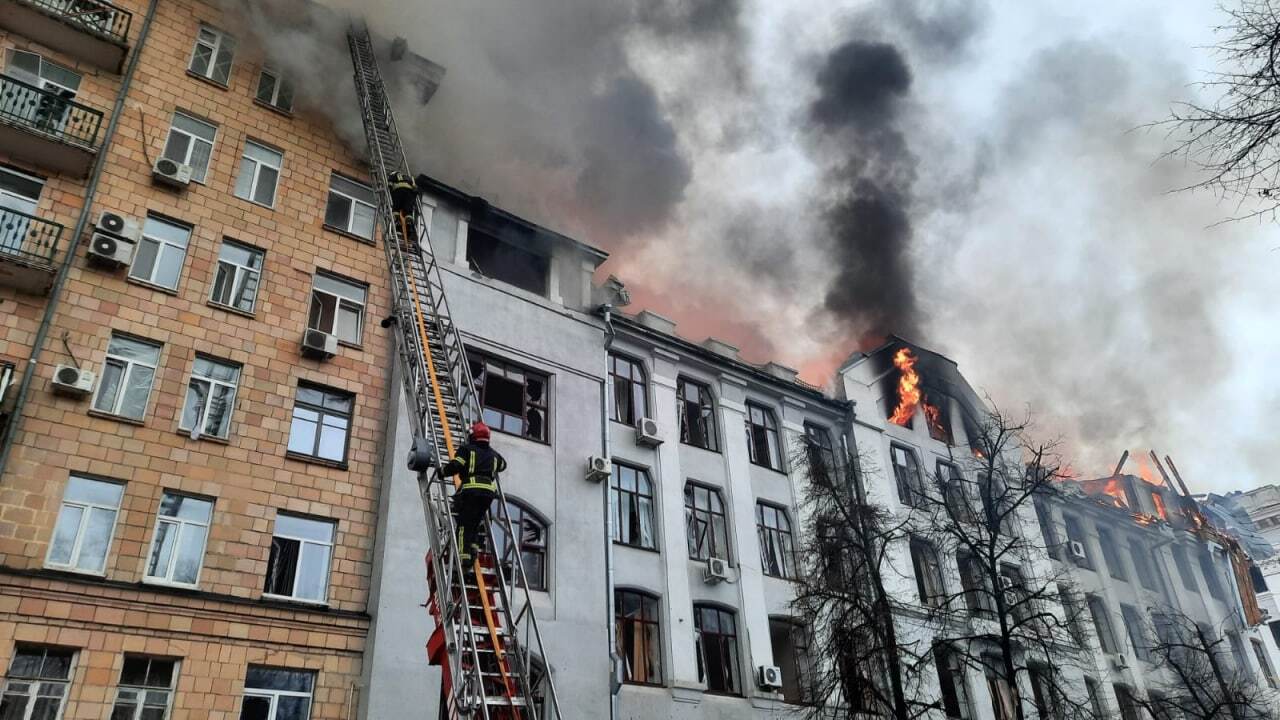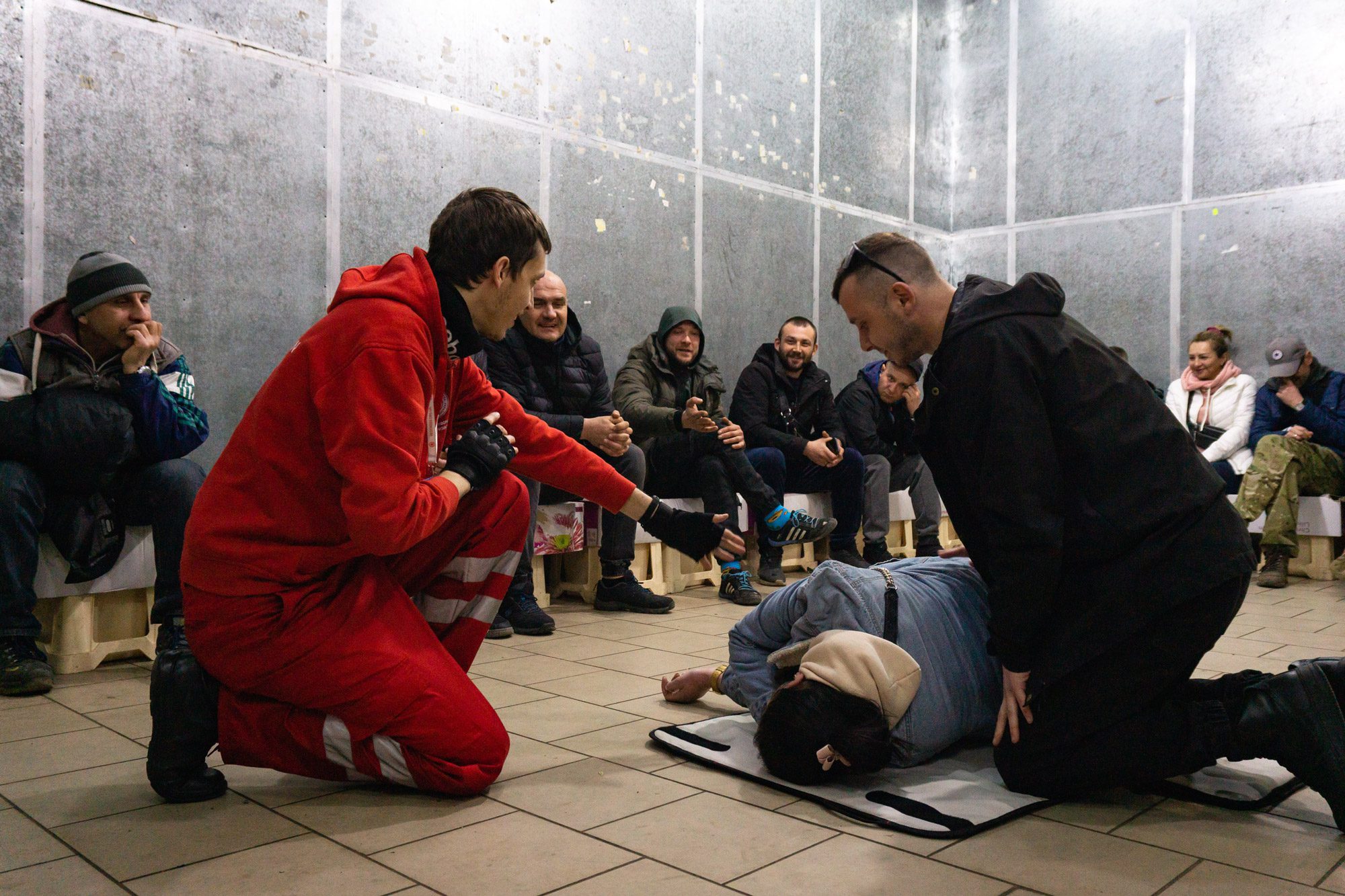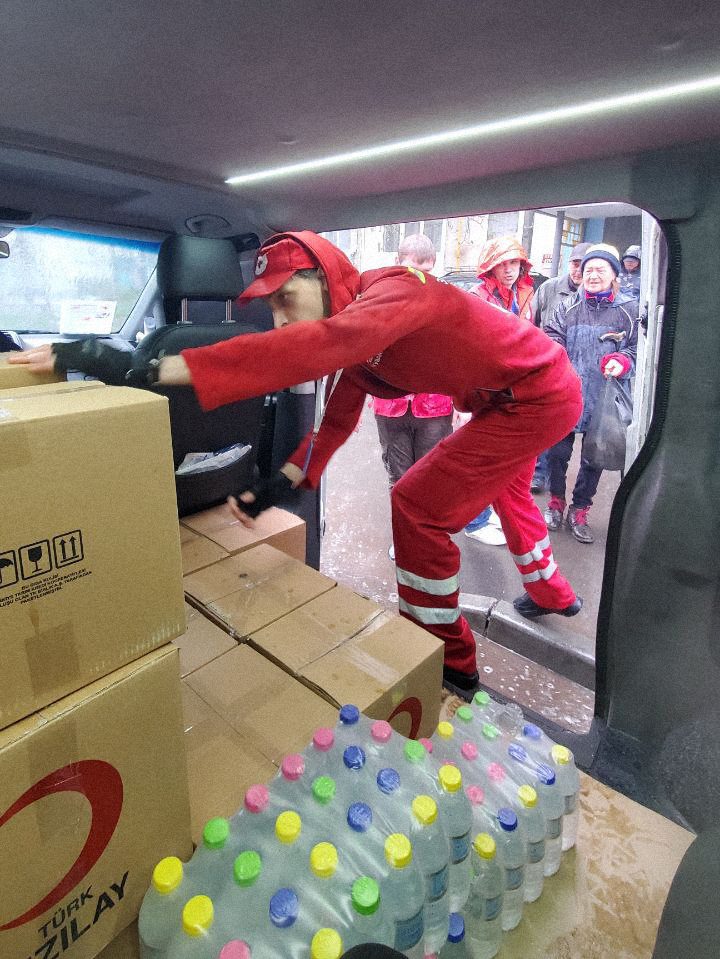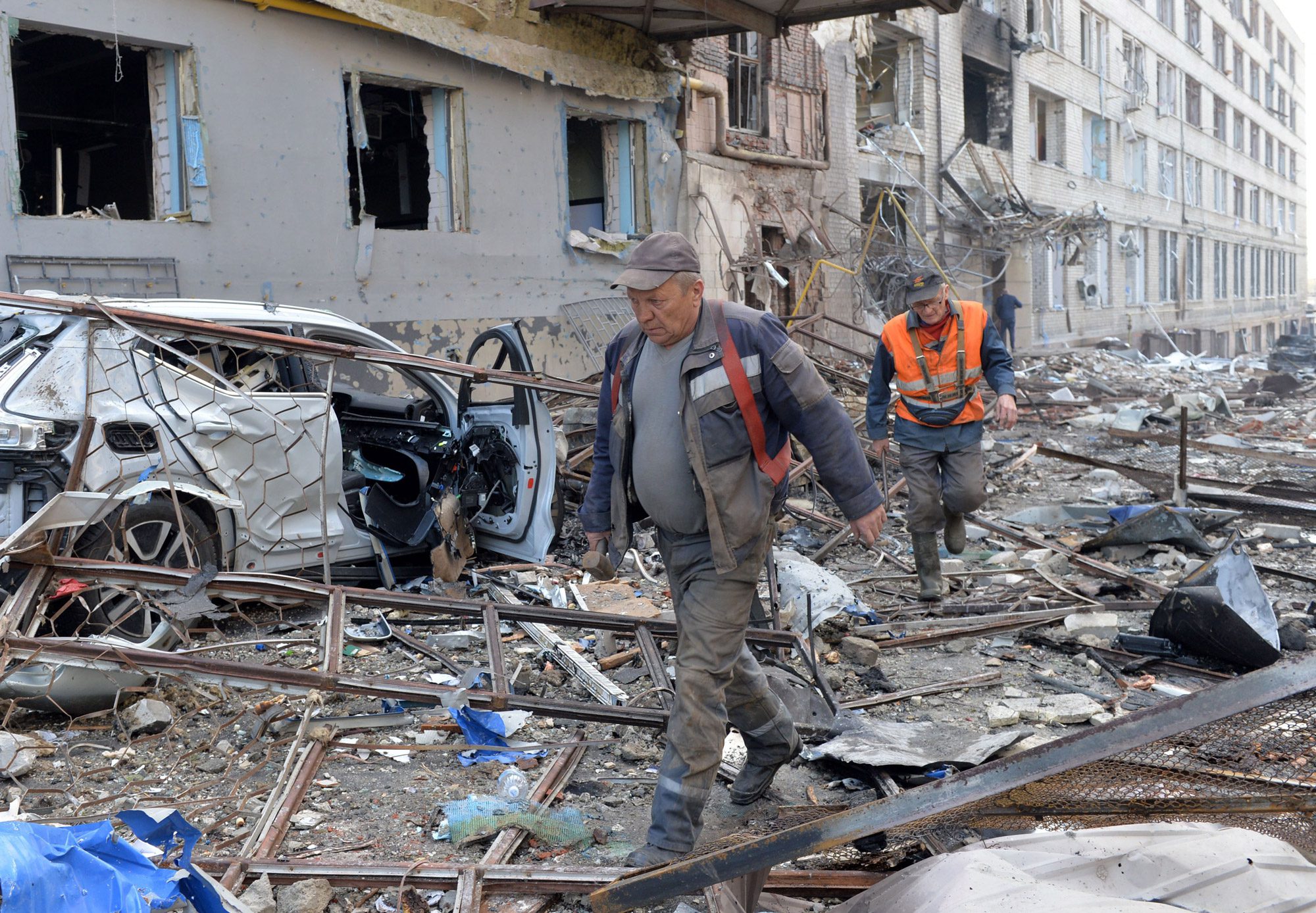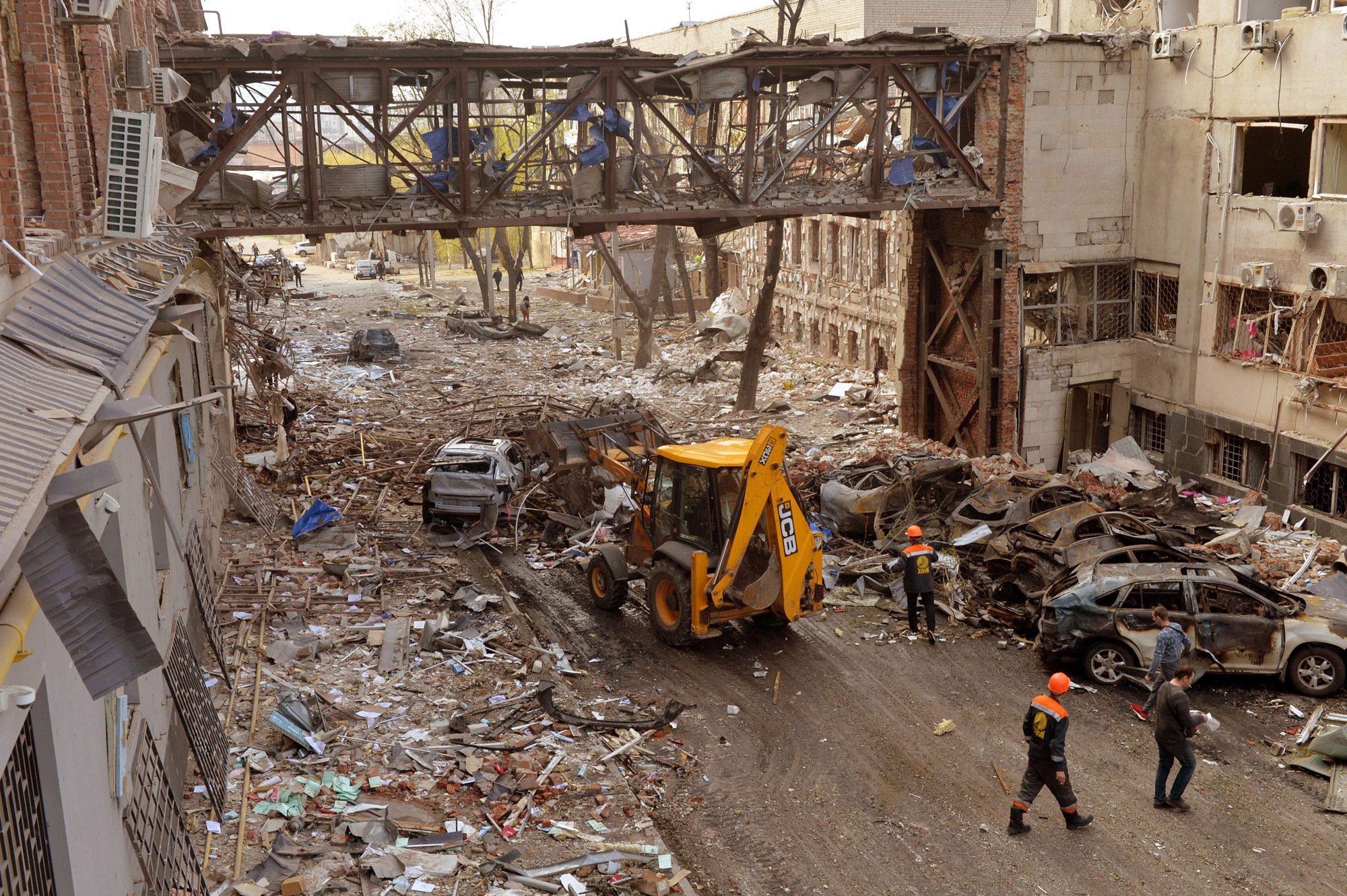From the first day of the full-scale war, the Russians have been actively shelling Kharkiv. Many residents were forced to leave the city, but some locals remained, including those struggling to keep the city alive and save those who get into trouble. We have already told the stories of women who refuse to leave and who volunteer from the first days of the war. Zaborona journalist Polina Vernyhor talked to three people who, despite the danger, go to work every day so that Kharkiv can wait for everyone who wants to return.
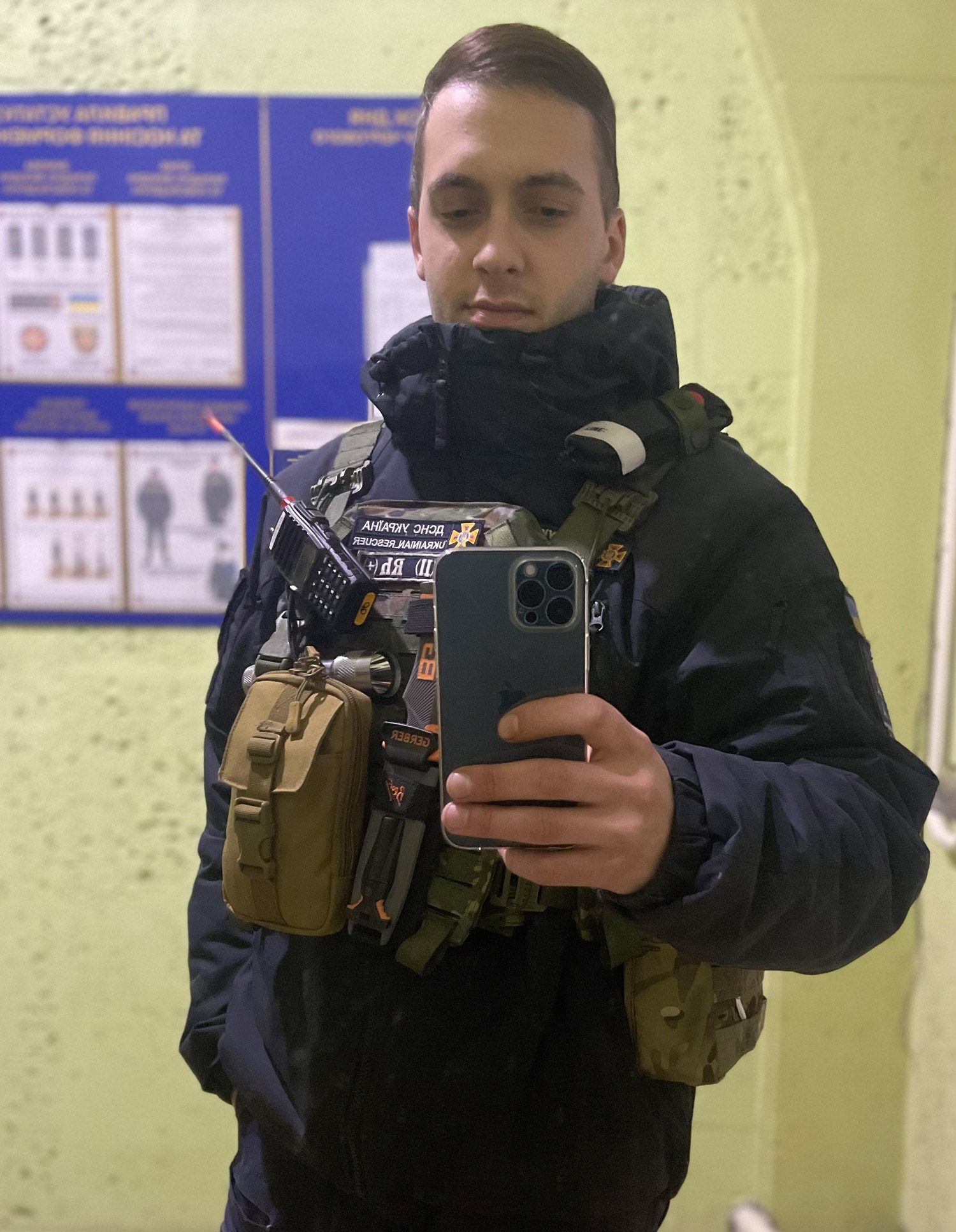
Oleh Synychenko, 26, chief of the SES guard
On February 24, at five o’clock in the morning, my relatives woke me up. They said something was exploding. At first, we didn’t believe that the war had started, and we didn’t understand anything at all. I just went back to sleep. But then there was a phone call that changed the course of events. A meeting of the current staff was convened at work. This meant we have to come to work soon.
The first challenge during the war. Air bombardment. Destroyed houses, dead and injured people – it seemed that it was unrealistic, that you would wake up now and it will vanish. The second challenge, the third, the fourth. You get used to it somehow. We heard the bombs falling, and over time we learned to tell if it was in our area or elsewhere.
Unfortunately, we have a job where we are constantly faced with human grief. We have very few young employees. The majority are guys who have been working for a long time. Everyone is trying to block their nervous system because they knew where they were going to work. In peacetime we also had specific trips – for example, to get the body of a man who climbed into the transformer box for scrap metal and there was a short circuit. Each trip hardens a bit.
Most rescuers share human grief and understand that a person’s house may be burnt down, that he may be left homeless. There are many such situations. If the rescuer doesn’t close the psychological component, he will eventually go crazy. We haven’t had such cases, thank God, because guys know how to switch. You took off your uniform in the morning, went home to rest, and have already switched, you already think a little differently. This trick with a uniform is a must here.
-

Extinguishing fire in the warehouse after the shelling by Russian troops. Kharkiv, March 28, 2022. Photo: Chris McGrath / Getty Images
We are the very first to arrive at the site of the shelling and see the whole picture: scattered parts of people, corpses, and landslides. But we need to work here and now to save those who can be saved. When we return to the unit, there is time to prepare the car, equipment, and uniform for the next departure. It’s a little distracting, it helps.
We are like a big family. We constantly communicate with each other, share some life situations, and try to help in some way. If someone is missing something, we all look for volunteers or other opportunities together. In the evening, if it is more or less quiet, you can unload your head a bit: watch TV or play dominoes with the guys.
-

Photo courtesy of Oleh Synychenko
I put on the uniform on February 24 and took it off only to wash it. Now I’m constantly wearing this uniform in the city. We have a lot of checkpoints so that not a single danger gets in, and with a uniform, it is easier to identify a person and understand the nature of his activity. Both the police and the rescuers, for the most part, now travel in uniform.
The second point is that the firefighter’s costume is a bit like a superhero costume. It can’t be cut with glass or metal, is made of a special fabric from which bulletproof vests are sewn. That is, these clothes are designed for such difficult working conditions. And, accordingly, it is safer in it.
We have now introduced a regime of operation during martial law. In normal mode we have four guards – each changes each other. Firefighters work one day and three days off. When martial law was imposed, the regime changed. Now we are on duty for two days, then we live and rest in the unit for two days. We now have two guards working together.
There are four cars in the unit – two for each guard. If there are serious trips, then each car gets its address, and where to go. In this way, we can provide more help at the same time. It turns out that each car can go to its address and do something primary, while additional power is on the way, if necessary. If, for example, something exploded at the address, there is a serious fire and more people are needed, all our cars can leave for one address at once.
The hardest thing is fear. In the first days of the war, we went to one address in the city center. We left at nine in the morning and came back at eight in the evening. Enemy missiles flew into the city center and ignited a very large area of the roof. Then an air raid was announced and enemy fighters arrived.
Probably the worst thing is to hide from the bombing. When they bombed nearby objects, there was a high probability that they would drop a bomb next to us, so, roughly speaking, vibrations could set in and the building would just collapse. You hear a fighter flying, you hear the sound of a bomb falling, and you have 2-3 seconds to jump into a basement, a niche, and run to a building. No one could have predicted the consequences. You realize that your end may come now. This emotion is the most memorable. In conversations with people, I always mention such a day when we extinguished the fire and were bombed at the same time.
-

Oleh’s guard works at the bombing site in the center of Kharkiv, on March 2, 2022. Photo: State Emergency Service of Ukraine / Handout / Anadolu Agency via Getty Images
I’m divorced. At first, my child and his mother were under Russian occupation in the Sumy region. It was emotionally difficult for me. We come to the unit, I tremble, taking the phone in my hands: how is it, what is there? You have to take care of yourself, your staff, to work, because people need help, rescue them – and in addition, you are worried because of your own child. Eventually, in 2-3 weeks, Russians were kicked out of that region.
My parents stayed in Kharkiv, so it was difficult at first too. People in a panic grabbed everything out of the shops, forming long queues on the street. You constantly think that a shell can hit this area, injuring people with projectiles. Despite the shelling, despite the Russian troops coming into the city, you understand that family and relatives want to eat. In any case, you have to stand in line, and go to the store to bring home at least something. And there were many like me. People continued to line up even after the same shells killed the citizens. It is very unfortunate that people who just wanted to eat died. These are the emotional moments that will be remembered.
The only thing I’m worried about now is that the occupied territories have become a big minefield. Unfortunately, more than one person will be blown up by such mines. Therefore, there will be a lot of work for the rescue service even after the war, believe me. Few people know how cluster munitions work. Few people know about munitions that have a self-destruct timer. The projectile can lie down after the attack and explode without direct activation.
All my relatives, of course, follow the news, they are very worried about me. I regularly run my blog on Instagram, they watch my stories. One day, one of the firefighters died while extinguishing fire after the shelling. The media spread the news very quickly. I was then called by all the relatives who could call – everyone was terribly worried whether it wasn’t me.
On the other hand, they are well aware that I am doing my job. I’m not one to just go somewhere far away and sit idle. This is my job, I have to be here. Unfortunately, if our service is removed, there will be many more victims.
People really appreciate our work – we feel it. I post some photos and videos on social networks, they write me many words of gratitude. Probably the most popular message that comes up is “God bless you.” Somehow, since the beginning of the war, it has become customary: the Armed Forces protects, the State Emergency Service (SES) saves, and doctors give lives. This is the trinity that works.
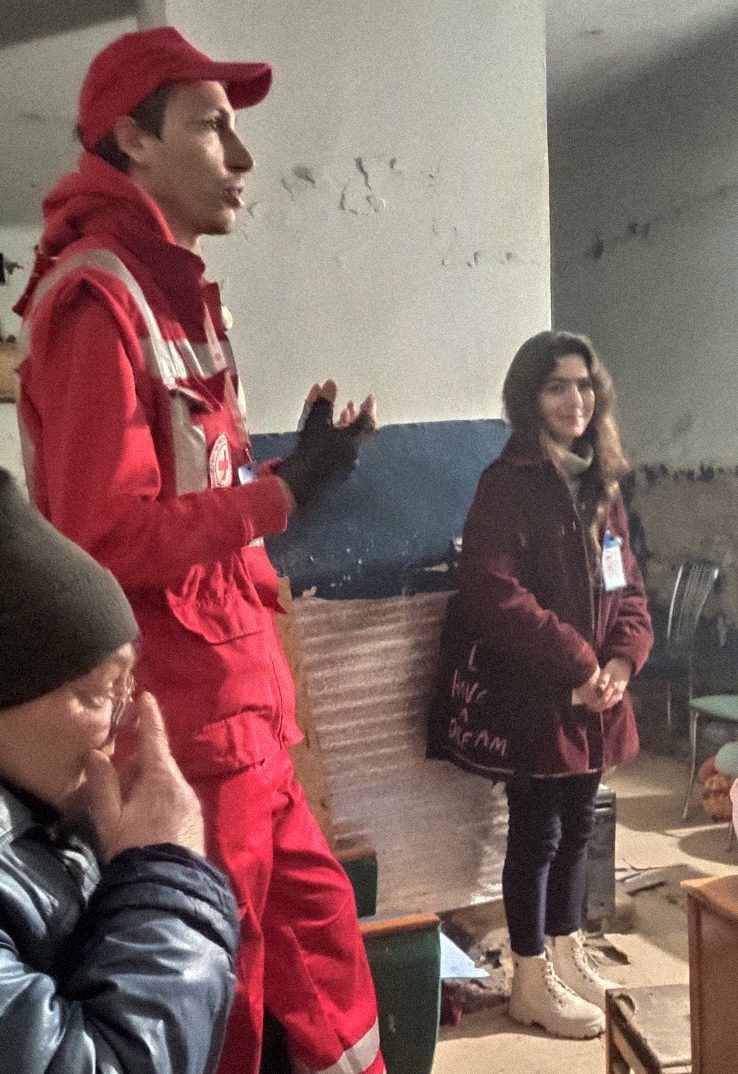
Denys Petrenko, Red Cross volunteer
I have been with the Red Cross for 8 years. Graduated from the Medical College in eastern Ukraine. After graduation, I thought about where to go next, because I wanted to become a full-fledged doctor, not a paramedic. I chose Luhansk State Medical University in Rubizhne. There I studied and volunteered. We went to “gray” areas where we trained people in first aid. That is, the task was to come to a settlement remote from Severodonetsk, teach people first aid and leave. The International Committee of the Red Cross helped us in this.
Then I had to change the university. Now I’m a student of the Volodymyr Dahl East Ukrainian National University. It was also located in Luhansk and then moved to Severodonetsk. Now I have moved to another city, like the Medical University.
On February 24, I was in Lysychansk. Somehow at first, I didn’t pay attention to what was going on somewhere: the shelling started a couple of weeks before the war. Then my older brother called first and told me to leave, and my mother called after him. In the evening I went home to the Kharkiv region.
It so happened that I tried myself in all types of troops, except the military. At first, he was a couch analyst – telling people what and where could happen and supporting our volunteers. Then I started to coordinate actions online: what to take, who to evacuate from where. Then the connection was down, there was no internet. You had to climb to the highest possible point to make a call. I quickly realized that it was dangerous to stay there, so my mother and grandmother left with me. Now, this settlement is under occupation.
I took my relatives to a safe place in the west of Ukraine and left them there. They wanted me to stay there, volunteer there, but a lot of people came and I said that there were definitely enough hands. I had the option to return to the Luhansk region, where it was already difficult not only to enter but even to leave, so I decided to go to Kharkiv.
I returned by evacuation train and arrived after the curfew, so I had to spend the night at the station. Then a relative took me away. I usually spend the night in the office, we all live like that here. But every two days I go to my relatives at least to wash things.
I’m a member of the rapid response team. We provide first aid – something that can be done before the ambulance arrives. It is the Red Cross Society in Ukraine that provides humanitarian aid and teaches first aid. Now the mine danger has become very active, so our task is to warn people about explosive devices. We also provide first aid.
-

Photo courtesy of the Red Cross
Most often we accompany humanitarian aid to remote areas of Kharkiv. On one of these trips, we arrived in two cars. One went straight and had to wait for us at a certain place, and we had to carry another person out from the hotel. And so it happened that the shelling began.
First, the enemy hit the building next to us. We drove forward to another building and saw shells falling around. Then we stopped to wait a minute or two when it would subside a bit. We drove a little further; I got out of the car to help people. People had already gathered there, a woman was put on a tourniquet to stop the bleeding, and another man was lying nearby. He also had two deep wounds. I didn’t have scissors with me to cut their clothes and take a closer look. I asked who applied the tourniquet, took out a marker, and wrote the time of application.
The doctors reacted very quickly. Two ambulances arrived – one for each victim. I started helping the paramedic. He gave me a bandage, and I held the wound. It was at this point that the next shelling began. It so happened that in front of this building in the hotel lived journalists who filmed this moment.
Their video shows how scared everyone was. Although, in fact, I understood that everyone just reflexively or instinctively worked according to the protocol and then hid in a shelter. I stayed with the woman, holding on to the wound. She covered herself with her bag. I was also trying to cover it. But it is clear that if the projectile hit somewhere nearby, the fragments would pierce me and her.
If there were two of me, I would go and cover the man too. The task of the Red Cross of Ukraine is to help people. Of course, we must work according to the protocol, including the security protocol. I myself must teach people to react in such a way as to save their lives. But why I myself did this – I still don’t understand.
I thought that journalists were filming everything else, not me. When the video was posted online, at first I did not understand why I was there in close-up. Then I thought that my mother might see it. I told her that I teach people in the office, and if there are trips, then, of course, they are calm.
-

Denys Petrenko. Photo courtesy of the Red Cross
At first, my brother called me from the hospital, he said: “Well, of course, you’re doing a good job, but call your mother yourself and calm her down.” If some details are omitted, on the one hand, she is glad that I survived, and on the other hand, it seems that I will not appear before her eyes for a while.
But it is really not me who should be thanked, but those who remain in Kharkiv. Thanks to the police, doctors, and employees of the State Emergency Service!
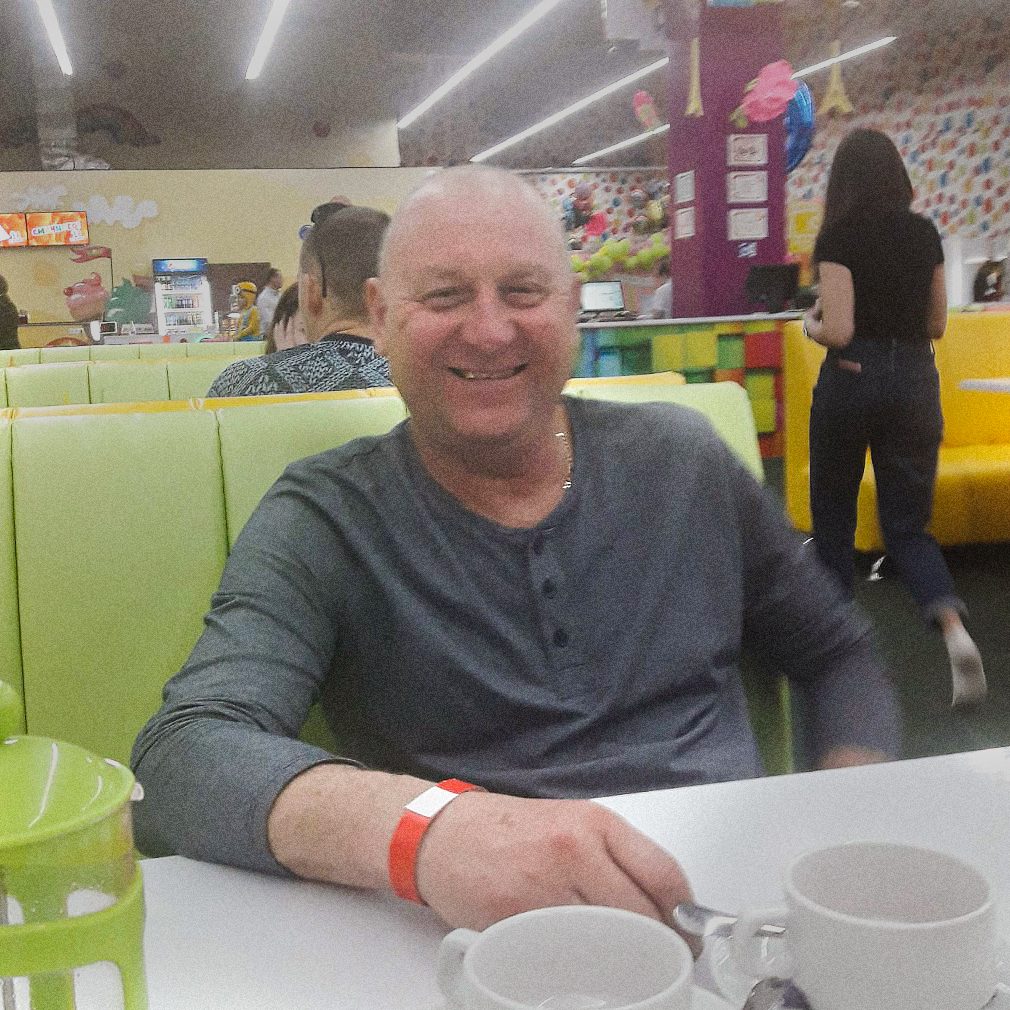
Eduard Tulupov, 61, driver of Shlyakhrembud special vehicles
We are directly involved in the cleaning of the city: in the summer, our cars clean the streets, and in the winter they remove snow and sprinkle roads from ice. In addition, our company lays asphalt when needed. Almost all divisions work at the enterprise [now]. Of course, some of the employees left the city with their families. For example, I have colleagues who have moved to small towns or villages in the region, and now those settlements are occupied, and they cannot return to Kharkiv. Still, most of us stayed here and went to work. Too many people work almost non-stop – everyone understands how important it is now to clean up the city.
On February 24, my family and I woke up to the sound of sirens. Then the shelling started, it was dangerous to work on the street, so we stayed at home for the first few days. And everyone was shocked, no one understood what to do and how we can work. In a few days, we were summoned by the management, instructed, and offered to go to work. In the beginning, few people came out, ten people – no one understood how safe it was.
Then it started to snow, glaciations began – it was necessary to remove it all. Many equipment units could not operate because of the shelling. We drove along one lane of the road, warming it up – territorially in the center. And when the snow began to melt, the shelling approached the central parts of the city and flew to the Kharkiv Regional State Administration.
Machinery simply could not get there – only tractors, dump trucks. Then many people came to the center: tractor drivers, ordinary drivers, workers. It didn’t matter who you were or what your position was. Our leaders worked side by side with us. Everyone was just shoveling the streets from the rubble of buildings. We were not allowed into the destroyed houses: rescuers worked there. We cleaned under the houses and only where the SES or the military allowed us.
Then more of our cars began to appear on the roads. We cleaned the main roads and roadsides. Despite constant shelling, fragments of houses, metal structures, and trees, the city is quite clean. Probably, this is also due to the fact that the number of cars and public transport on the roads has significantly decreased. Previously, all roadsides and half of the road could be blocked by cars, but now many people have left, so there are almost no cars parked on the road.
-

Public utility workers pass by buildings destroyed by shelling. Kharkiv, April 16, 2022. Photo: SERGEY BOBOK / AFP via Getty Images
Now we mainly work on one machine one at a time. About a week and a half ago, I was driving around the city in a company car and a rocket fell right next to me. From there, debris flew to the roadway. One piece of iron hit the car. It exploded in front, I automatically pressed the gas, but the car slowed down for 30 meters because it broke down. If I had driven further ahead, perhaps the blast wave would have hit me harder. I don’t remember what I thought then. Probably my usual life will never return.
Perhaps the worst thing is the feeling of uncertainty and expectation of something bad. You just don’t believe it’s really happening to you, to your family. My wife and daughter left on the twenty-second day. They have been here for a long time – waiting for me to go with them. But I just can’t. They went alone. They are taken care of there, and I understand that it is right. But they are not at home. We call each other often; we talk only about the good things. I don’t want to discuss the war. They read the news and they know what’s going on here.
There are no people who will now say that they are not afraid of anything. You never know where it might come from. But you can’t just sit at home and be afraid, because it doesn’t make sense. You somehow convince yourself that everything will be fine, you get ready and go to work. And when you come home from work, you cook food, change clothes, do housework and go to bed. But I don’t sleep well, to be honest.
Now there is no place where it would be safe: missiles can hit you anywhere in the country. And here I’m needed. There are a lot of people working in the city in general – even gardeners plant flowers. The locals see that the work is going on, that we are working, and they are also calmer thinking that no one will just give Kharkiv away. People greet us, wave to our cars, and thank us for our work. It gives a lot of strength.

Public utility workers are clearing the road from the debris of buildings destroyed by shelling. Kharkiv, April 16, 2022. Photo: SERGEY BOBOK/AFP via Getty Images

